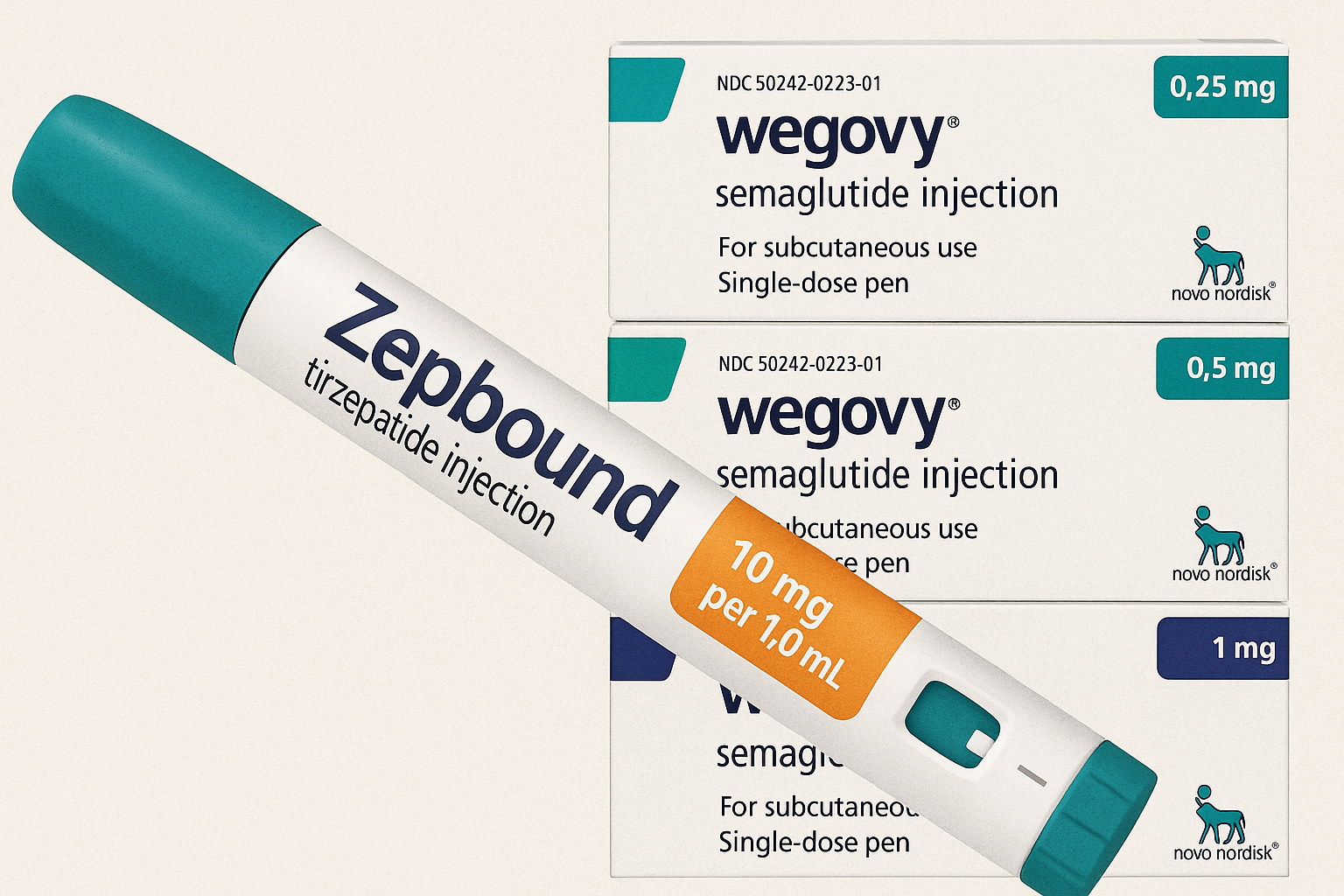Key Takeaways:
- Pharma giants like Novo Nordisk and Eli Lilly are racing to dominate the booming weight loss drug market, projected to hit $100 billion by 2030.
- New GLP-1 drugs like Wegovy and Zepbound deliver up to 22% weight loss and major heart benefits.
- Obesity’s global $2 trillion burden and shifting views on treatment are fueling investor frenzy — but high costs and access gaps remain.
In recent years, weight loss drugs have gone from niche treatments to blockbuster products — and the world’s biggest pharmaceutical companies are all in. From Novo Nordisk’s Wegovy to Eli Lilly’s Zepbound, these medications are dominating headlines, Wall Street projections, and healthcare conversations. But what’s driving this gold rush?
The answer lies in a mix of global obesity trends, game-changing drug efficacy, and a market that’s rapidly becoming one of the most valuable in modern medicine.
The Global Obesity Crisis: A $2 Trillion Burden
Obesity isn’t just a cosmetic concern — it’s a public health emergency. According to the World Health Organization (WHO):
- Over 1 billion people globally live with obesity.
- Nearly 70% of them are in low- and middle-income countries.
- Obesity is a major risk factor for type 2 diabetes, heart disease, stroke, and some cancers.
- The global economic impact of obesity-related illnesses is estimated at over $2 trillion annually.
This makes obesity not only a humanitarian concern but also an enormous untapped medical market.
Next-Gen Drugs: Better Results, Bigger Hype
Older weight loss drugs were plagued by:
- Modest results
- Harsh side effects
- Safety concerns (e.g., fen-phen scandal of the 1990s)
But today’s treatments — notably GLP-1 receptor agonists like semaglutide (Wegovy/Ozempic) and tirzepatide (Zepbound/Mounjaro) — are rewriting the rules.
Real-World Impact:
- Clinical trials show 15–22% body weight loss in many patients.
- These drugs also improve blood sugar, blood pressure, and even reduce cardiovascular risk.
- A 2023 SELECT trial found that Wegovy reduced the risk of major heart problems by 20% in people with obesity but without diabetes.
💬 “This is no longer just about weight loss. These drugs are becoming foundational in treating chronic metabolic disease,” said Dr. John Sharretts, FDA official.
Wall Street’s $100 Billion Forecast
The market potential is staggering.
- Goldman Sachs projects the global obesity drug market could hit $100 billion annually by 2030.
- Novo Nordisk’s market cap briefly surpassed Denmark’s entire GDP in 2023.
- Eli Lilly became the world’s most valuable pharmaceutical company in 2024, largely due to Mounjaro and Zepbound sales.
With hundreds of millions of eligible patients and lifelong treatment potential, investors are treating these medications as the next statins or insulin.
Big Tech and Retail Are Joining In
It’s not just pharma companies.
- Amazon and CVS Health are investing in digital weight loss platforms.
- Telehealth startups like Ro and Teladoc offer GLP-1 prescriptions with virtual coaching.
- Wearables and apps (e.g., Fitbit, MyFitnessPal) are integrating with personalized drug and behavior tracking.
This ecosystem of digital health + pharmaceuticals is opening up scalable, subscription-based models — further enticing investors.
The Catch: Access and Cost
The excitement is real, but so are the barriers:
- Most weight loss drugs currently cost over $1,000/month without insurance.
- Access in low- and middle-income countries is extremely limited.
- Long-term safety and affordability data is still emerging.
However, the WHO is considering adding these drugs to its Essential Medicines List, which could drive:
- Generic competition (as semaglutide patents expire)
- Tiered pricing models
- Government-backed access programs
The Future: Obesity as a Manageable Condition
The rise of GLP-1 drugs has fundamentally shifted the perception of obesity — from a “lifestyle choice” to a treatable chronic disease. This reframing aligns with a preventive healthcare model, reducing long-term costs for insurers and governments.
And that’s why pharmaceutical giants, tech companies, and investors are betting big: obesity is no longer just a crisis — it’s a multi-decade business opportunity.
Disclaimer
The information in this article is intended for informational and educational purposes only and should not be considered medical, financial, or investment advice. Always consult with a qualified healthcare provider before starting any weight loss medication or treatment. Market data and forecasts are subject to change and are based on publicly available sources at the time of writing. The author and publisher are not affiliated with any pharmaceutical company mentioned herein.
References:
- WHO: Obesity and Overweight
- Goldman Sachs Global Investment Report on Obesity Therapeutics
- Reuters: WHO Supports Global Use of Weight Loss Drugs




One thought on “Why Big Pharma Is Betting Big on Weight Loss Drugs: The $100 Billion Opportunity”